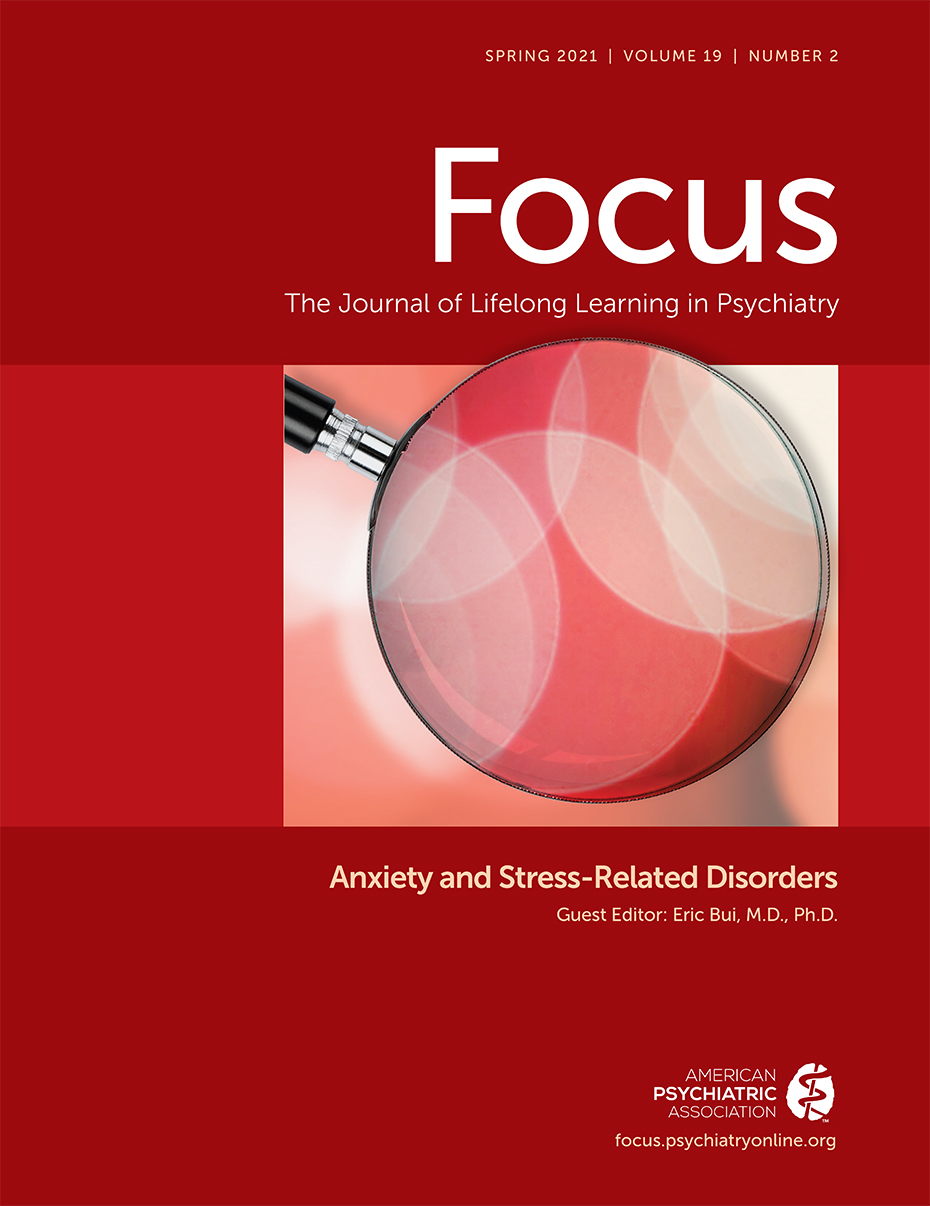Cognitive-Behavioral Treatments for Anxiety and Stress-Related Disorders
Abstract
Cognitive-behavioral therapy (CBT) is a first-line, empirically supported intervention for anxiety disorders. CBT refers to a family of techniques that are designed to target maladaptive thoughts and behaviors that maintain anxiety over time. Several individual CBT protocols have been developed for individual presentations of anxiety. The article describes common and unique components of CBT interventions for the treatment of patients with anxiety and related disorders (i.e., panic disorder, social anxiety disorder, generalized anxiety disorder, obsessive-compulsive disorder, posttraumatic stress disorder, prolonged grief). Recent strategies for enhancing the efficacy of CBT protocols are highlighted as well.



